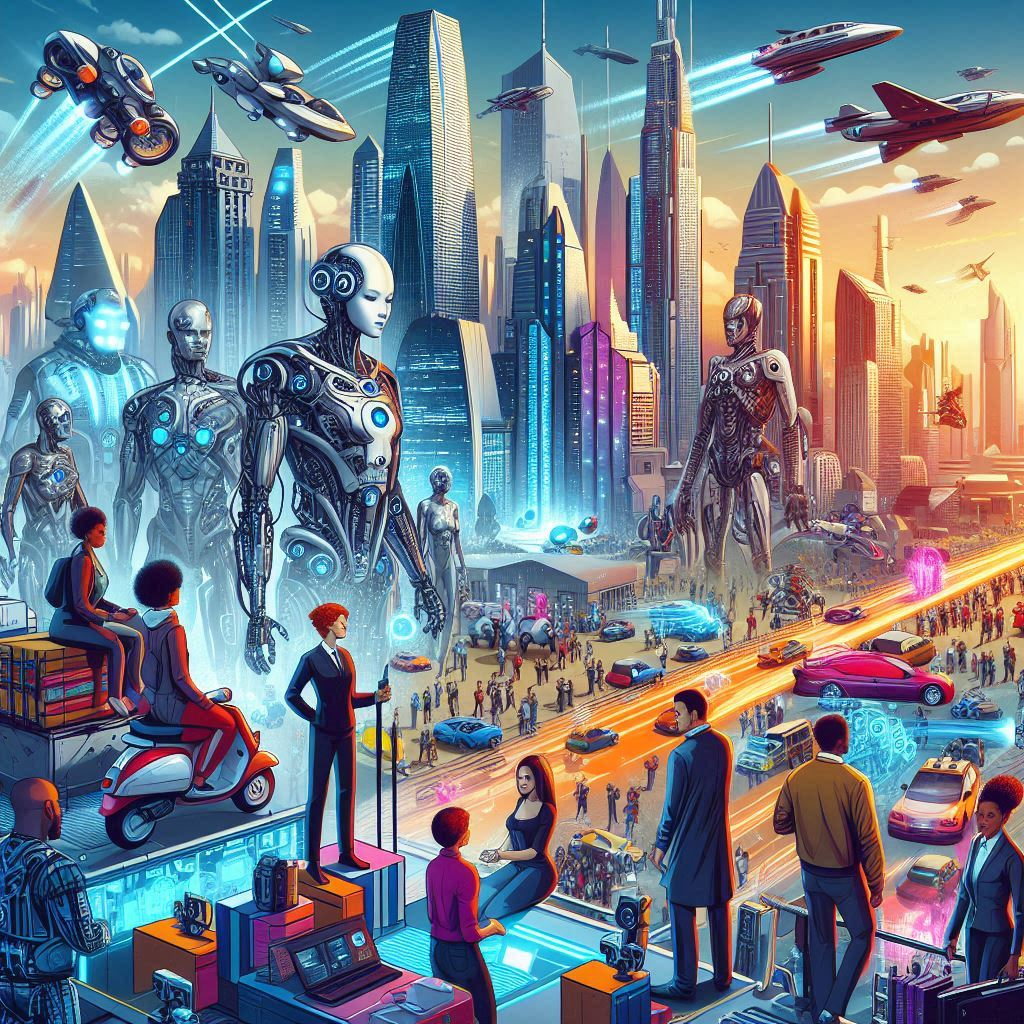Jobocalypse? No. Skills Revolution? Yes. Preparing for the Future of Work

Key Points:
- The future of work is about humans and AI collaborating, not robots replacing humans.
- Adaptability, digital literacy, critical thinking, creativity, emotional intelligence, and lifelong learning are essential skills.
- Individuals must actively develop these skills and embrace a growth mindset to future-proof their careers.
The world of work is in a state of rapid transformation. Automation and artificial intelligence (AI) are no longer futuristic concepts but are actively reshaping the landscape of industries across the globe. This shift has sparked anxieties about a potential “jobocalypse,” where robots replace human workers entirely. However, based on my analysis of global trends and labor market data, a more nuanced picture emerges. The future is not about humans versus machines; it’s about humans and machines working together, creating a new era of productivity and innovation.
The Evolving Landscape of Work
My analysis indicates that routine, repetitive tasks are becoming increasingly susceptible to automation. This includes jobs in manufacturing, data entry, and certain customer service roles. While this may lead to displacement in some sectors, it also creates opportunities for new types of jobs to emerge. Jobs that require creativity, critical thinking, complex problem-solving, and emotional intelligence are becoming increasingly valuable.
AI and Human Collaboration
The future workplace will be defined by collaboration between humans and AI. Machines excel at processing vast amounts of data, automating repetitive tasks, and providing insights that humans might miss. However, they often struggle with tasks that require creativity, empathy, and nuanced decision-making. Humans, with their ability to adapt, innovate, and connect with others, will play a crucial role in guiding and shaping the use of AI in the workplace.
Essential Skills for the Future
To thrive in this evolving landscape, individuals must develop a new set of skills. Adaptability is no longer a desirable trait; it’s a necessity. Here’s a deeper look at the essential skills for the future:
- Digital Literacy: Understanding how to use technology effectively is no longer optional. This includes proficiency in basic software, data analysis tools, and an understanding of cybersecurity principles. For example, a marketing professional might need to learn how to use social media analytics tools, or a healthcare worker might need to understand how to navigate electronic health records.
- Critical Thinking and Problem-Solving: Machines can process data, but they often struggle to analyze complex situations and make nuanced decisions. Humans who can identify problems, evaluate evidence, and develop creative solutions will be in high demand. For instance, a project manager might need to assess risks and make adjustments to a project plan, or a scientist might need to analyze experimental data and draw conclusions.
- Creativity and Innovation: The ability to generate new ideas, find novel solutions, and think outside the box is becoming increasingly valuable in a world where machines can handle routine tasks. A graphic designer might need to create innovative marketing campaigns, or an engineer might need to develop new product designs.
- Emotional Intelligence and Communication: As workplaces become more collaborative, the ability to understand and manage emotions, communicate effectively, and work well with diverse teams is crucial. For example, a salesperson might need to build rapport with clients from different backgrounds, or a teacher might need to understand and address the emotional needs of their students.
- Lifelong Learning: The pace of technological change is accelerating, meaning that the skills learned today might become outdated tomorrow. Individuals must be willing to embrace continuous learning and upskilling throughout their careers. This might involve taking online courses, attending workshops, or pursuing further education to stay abreast of the latest developments in their field.
Preparing for the Future
Individuals can take proactive steps to future-proof their careers:
- Self-Assessment: Honestly evaluate your current skills and identify areas where you need to develop.
- Embrace Lifelong Learning: Explore online courses, boot camps, workshops, and formal education programs to acquire new skills. Platforms like Coursera, edX, and Udacity offer a wide range of courses on relevant topics.
- Develop a Growth Mindset: View challenges as opportunities to learn and grow. Embrace change and be willing to step outside your comfort zone.
- Network and Build Relationships: Attend industry events, join online communities, and connect with people in your field to stay informed about emerging trends and job opportunities.
- Seek Mentorship: Find experienced professionals who can guide you and offer advice on career development.
The future of work is not a dystopian vision of robots replacing humans; it’s an opportunity to redefine our roles and create a more fulfilling and productive work environment. By developing the essential skills outlined above and embracing a mindset of lifelong learning, individuals can not only survive but thrive in this new era of human-machine collaboration. The key is to be proactive, adaptable, and willing to embrace the exciting possibilities that the future holds.


